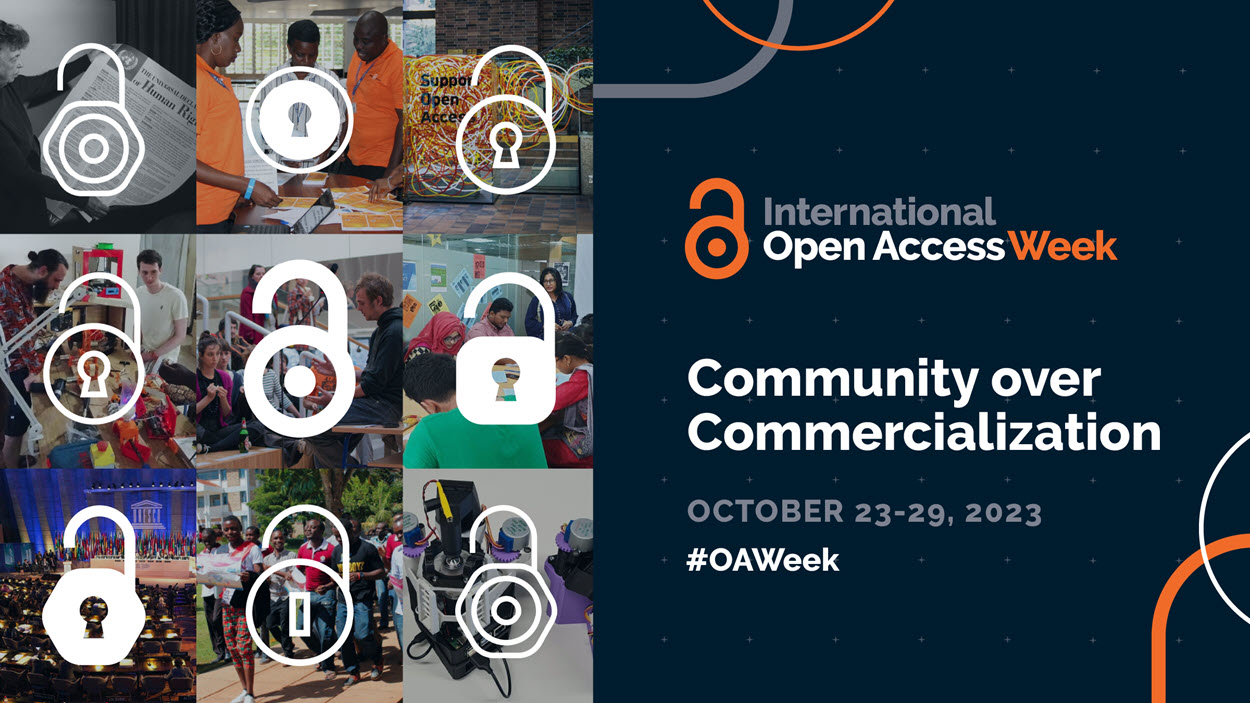Open Access Week 2023, 23-29 October, is an opportunity to join together, take action, and raise awareness around the importance of community control of knowledge-sharing systems. Here at Maastricht University, we use this opportunity for the academic and research community to continue to learn about the potential benefits of community-driven Open Access and to help inspire broader participation to make Open Access a new norm in research and education.
Developments in Open Access publishing
Over 85% of our research output at Maastricht University is now open access. This includes open-access published articles via a publisher (Golden Route) and paywalled publications shared via our Institutional Repository (Green Route). In the coming years, we will also focus on non-APC publishing options (Diamond Route).
Golden Route – Publishing OA (APC)
Open Access publishing via a publisher is free to read and use by the community but generally expensive for the publishing authors because of the article processing charges (APC). Commercial publishers and high-profile journals charge APCs up to $9,000.
In the case of publicly funded research, the project budget usually covers the publishing costs. Also, the library has made discount arrangements with many publishers, so authors can find journals to publish Open Access “for free”. But be aware that our discount deals cover APCs in a selection of journals.
Because no subscriptions exist with Full Open Access publishers like Plos, BMC and Frontiers, we have only limited leverage to arrange publishing deals. Currently, UM authors receive a 15% discount at BMC and a 10% discount at MDPI.
We are investigating with the Dutch research community to make more and better publishing arrangements with selected Full OA publishers.
Open Access Journal Browser
Always check the discount options in our OA Journal Browser before you submit a manuscript. Check license options and discounts, and if the journal of choice requires you to pay an APC, always check with your project/team if the costs are covered.
Diamond Route – Publishing OA (no APC)
Although open-access publishing is a success, there are also questions about the sustainability of the APC model. Although everyone can access published research, APCs limit publication options for the global research community. That is why there is a growing focus on Diamond Open Access initiatives (journals, publication platforms, and university presses).
Diamond means no charge for readers (subscriptions) or authors (APC). Diamond initiatives are usually non-profit or run by the academic community and cover the costs by other means (institutions, libraries, funders, societies). Next to facilitating the APC-driven open-access business model, we explore how our research community can better use existing diamond OA facilities and invest in developments in this area.
Maastricht University Press
Our first initiative, Maastricht University Press, allows authors to publish open-access books and textbooks without publishing fees. We’ve already published various books, including a conference proceeding and an educational textbook.
For a growing number of good Diamond OA journals (more than 13,000), you can check the Directory of Open Access Journals (DOAJ), and an excellent example of a Diamond publication platform is Open Research Europe (ORE), a publishing venue for European Commission-funded researchers across all disciplines, with no author fees.
Green Route – Making Non-OA publications freely accessible
Although immediate open-access publishing is preferred and, in the case of public-funded research, is required, publishing in a paywalled journal and making your work open-access after publication (embargo) is, for many publications, a good enough option.
To do so, you can submit the accepted version of your article to our Institutional Repository, and the library will open your manuscript, including the correct embargo period and appropriate CC license.
Taverne
In the Netherlands, we have a unique version of the Green OA Route, named “Taverne”, named after the amendment in the Dutch Copyright Act.
Usually, in a subscription journal, the publisher claims the copyright and dictates the open-access sharing facilities. However, the Dutch Copyright Act gives special rights to the creators of the work, who can share a selection of academic works with the community independent of the copyright holder.
The Dutch research community operationalised Taverne as the “You share, we take care service”. At Maastricht University, all authors can participate. After sending in a consent form, the library will legally share the published versions of all eligible paywalled works for authors after an embargo of six months.
We encourage you to sign up for “Taverne” and contribute to the community by opening your paywalled publications. All it takes is for you to send the consent form, and the University Library handles the rest.
Open Access and the Educational Community
Next to the use of open-access published research output textbooks, Open Educational Resources (OER) are gaining momentum in Dutch higher education.
During Open Access Week 2023, we want to raise awareness about community control in knowledge sharing and present two recent examples of best practices. Read “Create an Impact with Open Educational Resources!” for more.
Open Access, OER, and the UM community
We created a community in the UM Intranat UMployee to inform you and discuss all recent developments.
More information
Recent posts
- Embracing Open Access at Maastricht University: 2022 in Review and a Glimpse into 2023
- Open Access Publishing: Towards a More Inclusive and Diverse Publishing Landscape
Information pages
- Open Access publishing checklist – a step-by-step guide
- Top 10 Journal Selection Criteria
- Overview of all our Open Access APC deals with publishers
- Find discounts and other open-access information about journals in our Open Access Journal Browser
- Open Access publishing portal
If you wish to discuss your options or have questions about open-access publishing deals, contact Ron Aardening or Michel Saive via Ask Your Librarian. Or leave a comment at the bottom of this message.


0 Comments